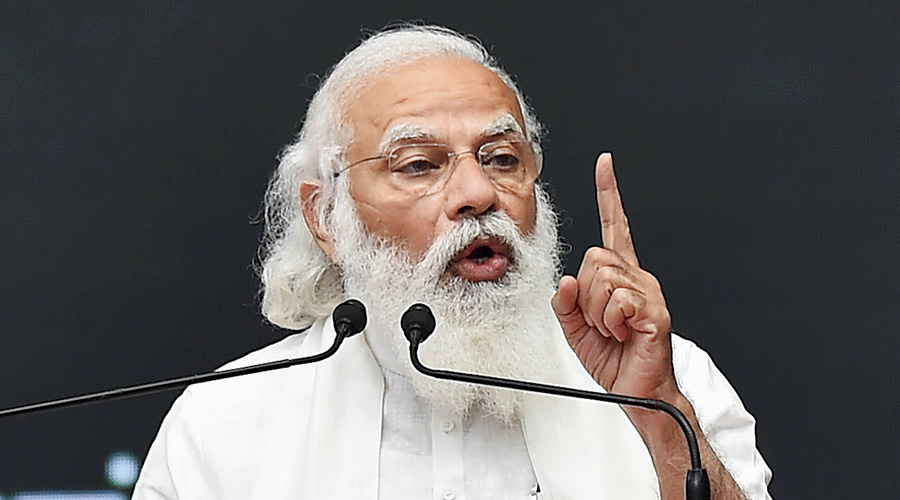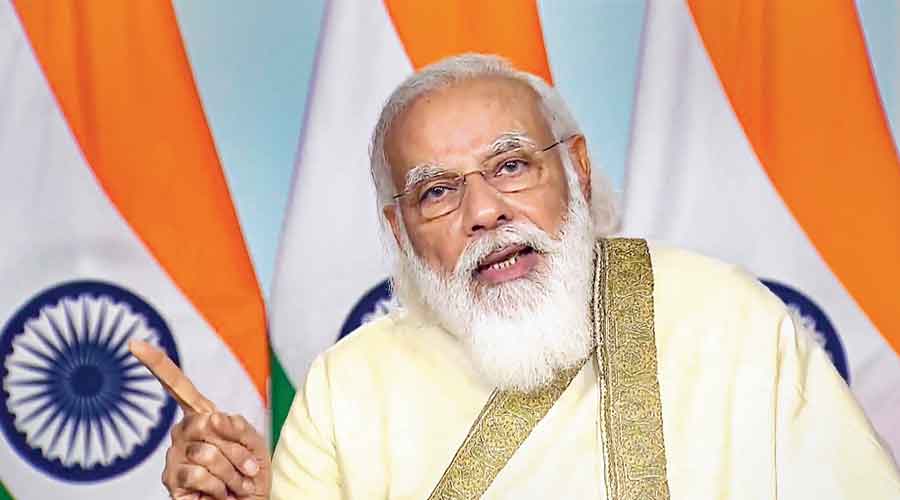Members of the House of Lords have taken the Narendra Modi government to task in a debate on Monday on “restrictions on freedom”.
A crossbencher — meaning he does not align with any party — Lord Harries of Pentregarth asked what representations Britain had made to the government of India “about reports of that government restricting the freedoms of (1) non-governmental organisations, (2) academics, and (3) other groups”.
Replying, Lord Goldsmith of Richmond Park, minister of state at the foreign, Commonwealth and development office, said foreign office minister Lord Tariq Ahmed — he has gone to India — “raised concerns about NGOs and human rights activists with the Indian high commissioner”.
He went on: “In February, British high commission officials discussed university restrictions with the ministry of external affairs. On 3 March, senior FCDO officials discussed UK parliamentary interest in restrictions on civil society groups in India with the Indian high commissioner.”
Harries was not satisfied and persisted: “To give just one of numerous examples, more than 24 Dalit rights activists are in jail on unproven charges, including an 80 year-old poet, Varavara Rao, and an 83 year-old Jesuit priest, Father Stan Swamy.
“When the Prime Minister’s proposed visit to India is reinstated, will he draw Mr Modi’s attention to the report of Freedom House published this week, in which India has been downgraded from a democratic, free society to one which is only ‘partly free’?”
Goldsmith — he is Zac Goldsmith, Jemima Khan’s younger brother and Imran Khan’s former brother-in-law — replied: “We will continue to engage India on the full range of human rights matters and raise our concerns where we have them — as we do — including at ministerial level.”
Lord McConnell of Glenscorrodale, a Labour peer, was also critical: “In my view these reports of restrictions on freedom of expression and organisation in India follow directly from the decision in 2019 to end the autonomy of the people of Kashmir and impose severe restrictions there, locking up political leaders and ending freedom of expression.
“Do the government agree that India cannot claim to be the world’s largest democracy if it continues to restrict freedom of expression and freedom to organise? Will the government make representations to India that, if it wants to be part of the democratic nations of the world, it must stick to these values rigidly?”
Peers are invariably polite but know how to make their points calmly and forcefully.
Baroness Northover, a Tory, also piled in: “The government of India are reported to consider human rights there an internal matter.… lessons from the 20th century in particular show that it is vital that the world pays attention to human rights, even within borders. If so, what representations have been and are being made to the government of India on the forced closure of Amnesty International India and the freezing of its accounts?”
Goldsmith replied: “The right to peaceful protest is vital in any democracy and we encourage all states to ensure that their laws are in line with international standards. Any allegation of human rights violations is clearly very concerning and should be addressed.…Lord Ahmad… raised Amnesty International India’s case with the Indian high commissioner on 1 December and FCDO officials have raised our concerns with the Indian High Commission. Just a few weeks before, we requested in our representations that Amnesty’s accounts be unfrozen while the investigation is ongoing. We have noted the important role of NGOs in all democracies.”
The Earl of Sandwich, a crossbencher, commented: “Will HMG continue to complain regularly to the Modi government about the imprisonment of journalists and the fear of persecution felt by non-Hindu minorities, Dalit activists, NGOs and all those campaigning against human rights violations?”
Labour’s Lord Collins of Highbury said: “The strong relationship with India, built on trust and mutual respect, should give us the confidence to play the role of a critical friend. That means stressing the importance of a free civil society in a democracy. Can the minister say whether the Prime Minister will raise this issue not just through our connections with ministers but with Prime Minister Modi at the G7?”
Goldsmith confirmed that Boris Johnson “will visit India shortly. That will be an opportunity to discuss a very wide range of bilateral and multilateral issues directly with the Indian government. Of course, where we have specific concerns, the Prime Minister will raise them directly with the government of India, as you would expect of a close friend and partner.”
Modi and the external affairs ministry should be concerned that little by little the Indian government’s reputation is being sullied.
Goldsmith set out British government thinking: “India — as the world’s largest and, as I say, one of the oldest democracies — and the UK have a very deep and broad relationship. Our trade and investment partnership is thriving, and we collaborate on defence and security. Together we are a force for good in the world…. We regard ourselves as friends, but as critical friends.”











